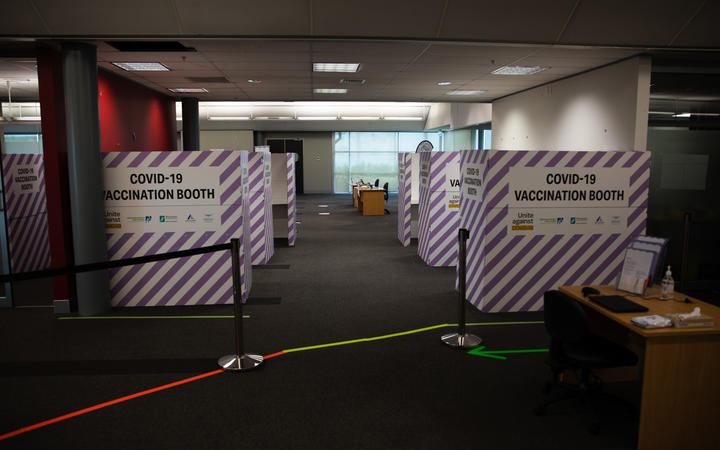
Nine staff, all in fixed-term employment at the maritime border, had their contracts ended early.
Customs deputy chief executive for people and capability Jacinda Funnell said the decision was taken to comply with public health regulations that came into force this month.
From May 1, all workers in managed isolation and quarantine (MIQ) facilities and government agencies at the border had to be vaccinated.
Advocate Ashleigh Fechney, representing four of the Customs staff who have consequently lost their jobs, said it equated to an unfair dismissal.
"Our question is, do these particular people in their particular workplace, do they need to be vaccinated?
"The conclusion we came to, was probably not, because they don't actually have any interaction with international passengers or crew at all."
The staff were told on Friday they were losing their jobs, and paid out a month in lieu.
But the act of firing them is a breach of their rights, she said.
"Because they've been terminated, and there isn't a high enough risk of contracting Covid-19, I really think their rights have been impinged on, and that's the right, under the New Zealand Bill of Rights Act, to refuse medical treatment."
Fechney said the staff were never given the opportunity to discuss with Customs management higher up about their decision to not get vaccinated, and what implications it could have.
"We did raise concerns and write to Customs, but Customs took a very blanket approach, and said, 'We believe that you are high risk and therefore you need the vaccine, and if you don't get the vaccine, we're going to terminate your employment'.
"But we didn't actually get to have robust conversations about their role, and what the risks were, and what we saw it as."
Funnell said Customs did look into redeploying the workers into other positions, but that such options were not available.
It also looked into redeploying across the wider public service, but that was also not available.
Fechney said they were now looking to possibly go to the Employment Court, seeking compensation.
"[The] primary focus really will be looking to get compensation for the loss of their jobs. They didn't deserve it. They put themselves on the line, to protect New Zealand borders, and now they're just being hung out to dry, and it's not fair."
Customs 'between a rock and a hard place'
Border and MIQ workers had been asked to work before a vaccine was available, putting their families at risk, so there was an emotional school of thought that significant steps should be taken to try to find alternative roles for them, employment lawyer Bridget Smith said.
"I'm sure [Customs] do want to do their best by the people who have done such good work for them over the past year, and they really are between a rock and a hard place."
Customs was obliged to follow the government's Public Health Response (Vaccinations) Order, requiring MIQ staff and those who work for government agencies at affected airports and ports to be vaccinated.
The dismissals raised questions over why an organisation the size of Customs would have no redeployment options, but Smith said in a region where there were limited Customs roles, and the worker was unable or unwilling to relocate, redeployment would be more difficult.
However there could be unfair dismissal claims on the grounds of the particular work particular work an individual was doing.
"If an individual was never coming into contact with affected ships or crews, then he or she may well have an argument that they are not required to be vaccinated under this order."
She expected more employment issues to arise as the vaccine was rolled out.
"It's highly unlikely that we're going to see the government issue orders that apply to, for example, retail stores or hospitality businesses," Smith said.
"It's going to be up to employers in that situation to manage risks with their particular employees and the appetite of those employees to be vaccinated and the appetite of the employers to have employees who may or may not want to be vaccinated."
Comments
No way should vaccine-refusers be compensated - do this and it just becomes a matter of 'money or the vaccine' - this would effectively encourage more people to refuse to get vaccinated.












